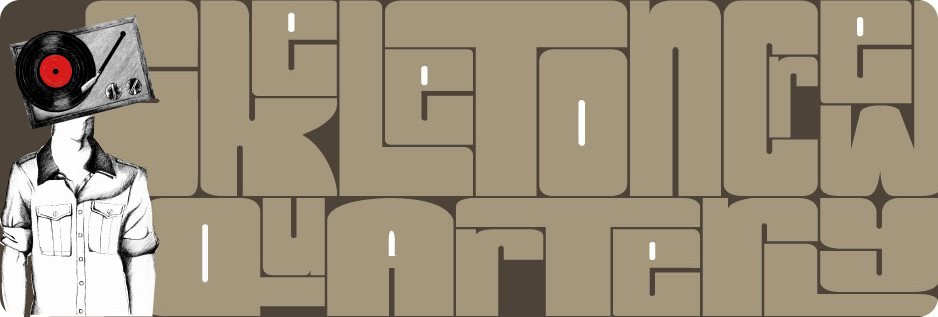
All Delighted People EP
Sufjan Stevens
Asthmatic Kitty Records / Bandcamp.
SCQ Rating: 83%
When Sufjan Stevens admitted – in a sudden non sequitur to Exclaim Magazine last fall – that he was suffering an existential crisis as a songwriter, many fans and music journalists deemed the indie-darling creatively lost. Not even a filled-to-capacity outtakes record, five discs of Christmas cheer and a classical project about the BQE Expressway could distract Sufjan-fans from the glaring lack of new material Stevens was issuing, all the while Illinoise’ shadow continued to grow…
All Delighted People, the out-of-nowhere EP that launched from Stevens’ Bandcamp page two weeks ago, finds the prince of indie-folk shedding the many outlandish expectations that have followed him through the years. The 50 States Project, the expectations for another concept-driven epic; All Delighted People pushes these dusty conversation-points off the proverbial cliff. Instead these seven new songs capture Stevens at the fringe of his artful bipolarity, nuzzling progressive epics with the stripped-back acoustics prominent on his Songs For Christmas box set.
First, the epics which bookend the EP, ‘All Delighted People (Original Version)’ and ‘Djohariah’; at eleven and seventeen minutes, respectively, these tracks take opposing approaches to the longform composition, the title track contrasting sweet minimalism with confrontational orchestration, the closer riding the spastic-guitar and deep grooves of a hippie-commune. Both take self-conscious stabs at keeping the listener at arm’s length but end up boasting a complexity that makes its emotional core all the more satisfying to uncover. Landlocked between these shape-shifting boulders lies humble folk songs (‘Enchanting Ghost’, ‘Heirloom’) and a fluttering slapdash of fleeting ideas (‘From the Mouth of Gabriel’), their intentions earnest enough to remind us of Stevens’ raw songwriting power, if unable to match the exhausting nature of its neighbouring giants. Although relatively straightforward, these tracks don’t gel so much as own their own sonic territory, some permeating of Seven Swans era acoustics (as on the shaggy charms of ‘Arnika’), others isolated in their own worlds (the bareboned piano on ‘The Owl and the Tanager’). Stevens is no stranger to variety, only here his songs are autonomous and unattached to a greater cause. Bizarrely, this isolation makes each song feel increasingly brazen.
Whether one views All Delighted People EP as a surprise party or an unexpected stop-gap release, it’s an important sixty minutes that suggests five years has yet to dethrone Stevens from either his lo-fi or high-gloss indie-rock realms. He’s abandoned his delicate voice in favour of something more immediate, challenged his songs with rollercoaster narratives, and shaken the weight of his past successes off his shoulders. Don’t be surprised if All Delighted People, intertwined with its stylistic departures and familiar retreats, becomes known as the epilogue to Sufjan Stevens’ much-loved preciousness.
Sufjan Stevens - All Delighted People (Original Version) by de.stijl























